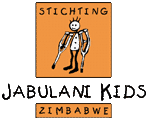What does the King George VI centre do?
What does the King George VI Centre do?
The KGVI Centre promotes the development of and provides shelter and education to children and young people with physical disabilities or a hearing impairment. In addition, the Centre is a source of entrepreneurship and creativity, in order to prepare children with disabilities for a future.
Development
The children of the King George VI Centre all have a disability, such as deafness, spasticity or paralysis. They are vulnerable in a country where poverty and political instability prevail. Their development into self-reliant adults is not obvious. A growing number of the children are orphans. The AIDS epidemic plays a major role. In a country like Zimbabwe, children with disabilities face additional challenges. In the Centre, the children receive attention and expertise they need to develop. Consider the expertise of occupational therapists, speech therapists, social workers and educators. Along with them, the children develop into self-reliant, resilient, communicative and socially skilled adolescents.
Education
The King George VI Memorial School provides education tailored to its students and mainly focuses on the abilities and talents of the student. The school prepares them for a job or further education.
Shelter
In Zimbabwe, the King George VI Centre is one of the few organizations for children with disabilities. The children come from across the country. They only go home in the holidays, if they still have a home. For the growing number of orphans the Centre ensures permanent housing. Resident children stay in small units with an accompanying ‘home parent’, to create a family setting. In the units the children develop their independence by dividing household tasks, managing a budget for groceries and preparing nutritious meals.
Entrepreneurial
The Centre aims to give young people with disabilities a future. The Centre does this, amongst other factors, by promoting business development. An example is the hair salon on campus where hearing impaired girls experience being a hairdresser. An example of a different order is that the Centre is the initiative taker of the first national dictionary of sign language (published in 2011), something experts across Zimbabwe have participated in.
Creativity and sportsmanship
The children are given many opportunities to develop themselves. They participate in art festivals, have sports days, make music, dance and drama activities. The school band has even performed in the U.S. and in Europe.









